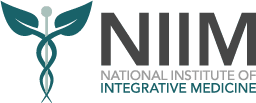By Professor Avni Sali AM
MBBS, PhD, FRACS, FACS, FACNEM
At the National Institute of Integrative Medicine (NIIM), we have always prioritised safe, evidence-based medicine. As a strong advocate for precision and bespoke medicine, NIIM believes each person is unique, and so are their health needs – and this extends to how we approach supplementation. While supplements can offer significant health benefits, particularly in cases where nutritional deficiencies exist, it’s essential that their use be guided by personalised, professional care.
The Risks of Self-Medicating
For many years, we’ve seen a growing trend of people self-prescribing supplements, assuming that what is good for one will be good for all. While well-intentioned, this practice may carry risks. What works for one person may not work – and could even be harmful – for another. The dangers include potential overdosing, nutrient imbalances, and drug interactions that may reduce the effectiveness of supplements or medications.
For example, minerals like magnesium, zinc and vitamin B6 may be present in several different products. Without proper guidance, a person may unknowingly consume these nutrients in excess. This is why it’s critical to consult with an Integrative GP, naturopath or nutritionist/dietitian before self-consuming supplements. These trained clinicians can undertake baseline tests to determine any nutrient deficiencies. This allows them to recommend a supplement regime that’s both safe and effective for individual needs.
A Safe and Regulated Industry
The good news is that the Australian supplement industry is among the most highly regulated in the world. Supplements available here are generally exceptionally safe, especially when compared to pharmaceutical products. Interactions of clinical relevance are also very rare with supplements and when side effects do occur, they are usually mild and reversible. On the other hand, clinically significant interactions are quite common with pharmaceutical drugs.
Still, professional guidance remains key. Even with a safe product, misuse can lead to complications – something that can be easily avoided through integrative healthcare.
Addressing Common Deficiencies
Unfortunately most of the general population is unaware they are living with correctable deficiencies and imbalances. Low levels of Vitamin D, elevated Homocysteine, and other nutrient abnormalities and deficiencies are common – yet easily rectified with the right supplement plan. Left unaddressed, these issues can contribute to chronic illness. A special type of vitamin B6 can be important when reducing elevated homocysteine levels.
Inflammatory conditions such as arthritis, cardiovascular disease, and even depression can be greatly assisted by anti-inflammatory supplements like Curcumin and Fish Oil. These have been shown to play a beneficial role in managing these conditions, but again, should be used under professional supervision.
Consult Before You Supplement
The takeaway? In general supplements are exceptionally safe and can be very effective. There is ample evidence to support the use of nutritional supplements in cases where deficiencies exist. Supplements can be incredibly beneficial.
If you’re considering taking multiple supplements or have questions about your current regimen, NIIM is here to help. Our fully qualified clinicians are committed to providing holistic, evidence-based care that empowers you to maintain and improve your health.
Written by Professor Avni Sali.
Professor Sali is the Founding Director of the National Institute of Integrative Medicine, established in 2009. Previously he was the Founding Head of the Graduate School of Integrative Medicine at the Swinburne University in Melbourne. In the past, he was also Head of the University of Melbourne Department of Surgery at Heidelberg Hospital. A highly sought after Integrative Medical Practitioner, Professor Sali contributes to a wide variety of publications in Australia and overseas. As well he is invited regularly to at conferences and workshops both nationally and internationally. His clinical practice focuses on treating complex and chronic diseases, particularly cancer. As a leader in his field and through his large body of work, he has inspired and led a new generation of doctors to the practice of Integrative Medicine.
To learn more about Prof. Sali, click here.
The content of this post is general in nature, the information should not be relied on as medical advice, and persons should seek advice relevant to their circumstances.
